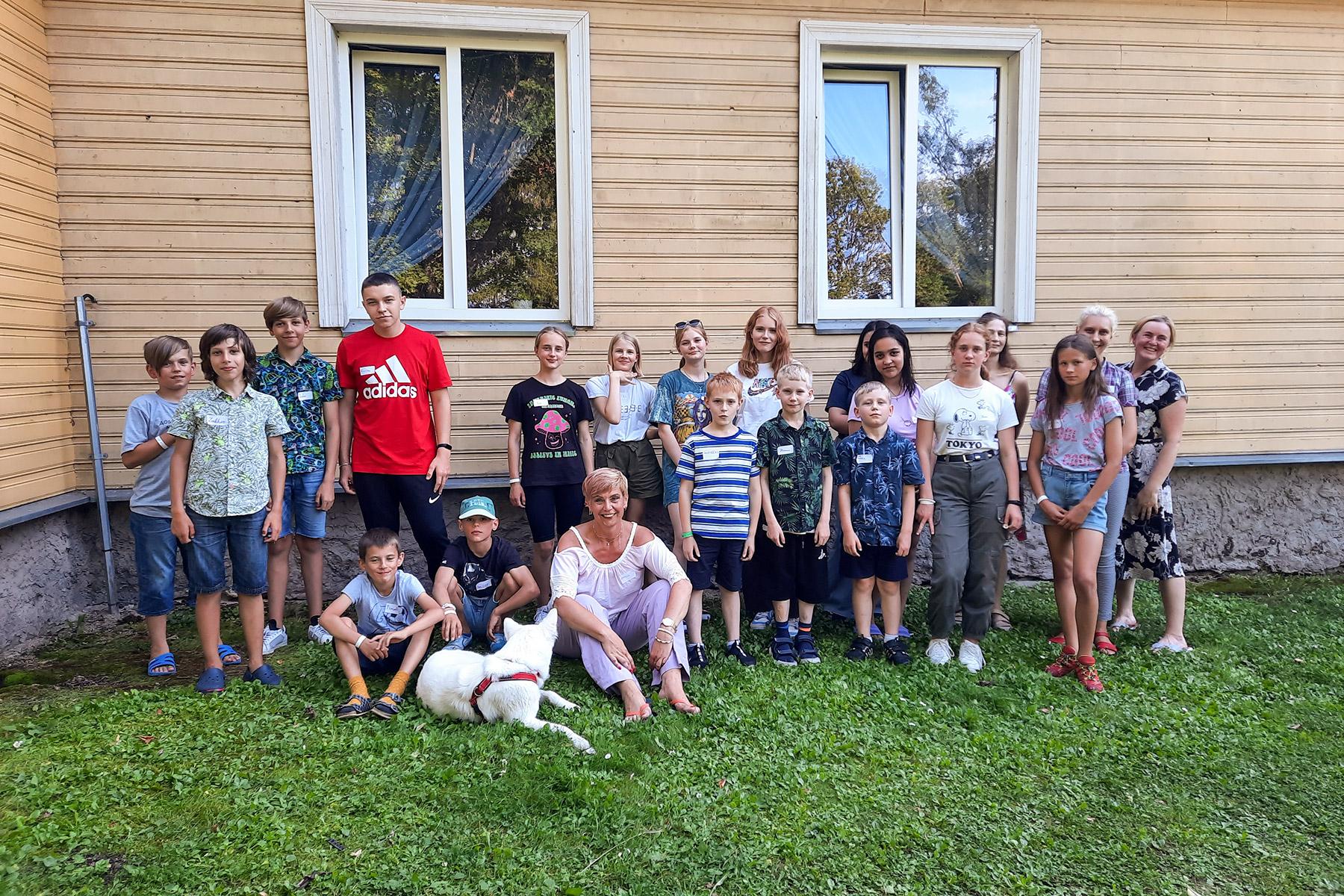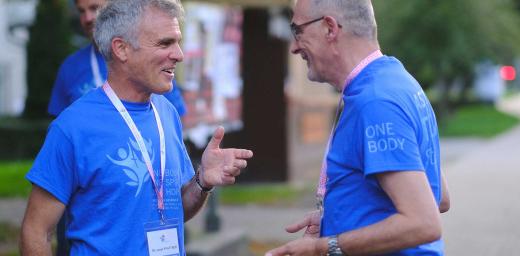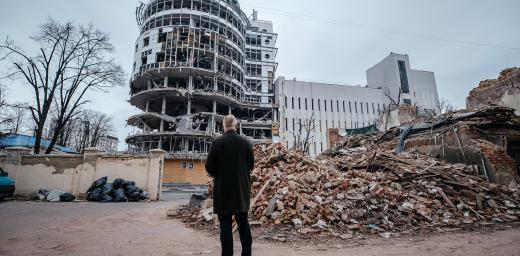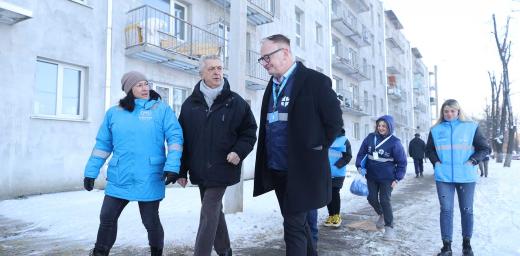EELC book celebrates support for Ukrainian refugees
(LWI) - Since the invasion of Ukraine by armed forces of the Russian Federation, Lutherans in Estonia have welcomed refugees with open hearts and hands. Congregations of the Estonian Evangelical Lutheran Church (EELC), an LWF member church, and its diaconal agency have arranged accommodation, provided pastoral care, and organized activities to make Ukrainian refugees feel welcome. The Lutheran World Federation (LWF) supported some of this work. In a book, Towards Peace, EELC now shares examples of this helping hand to war refugees from Ukraine.
“A war of invasion is a sin, without any reservations,” Archbishop Urmas Viilma says in his introduction. At the same time, he emphasizes the power of compassion. “Evil can never completely deprive us of faith, hope, and love. Even if we are robbed of everything else, faith, hope, and love cannot be stolen.”
Transmit kindness
To many Estonians, the invasion of Ukraine hit very close to home. In interviews and articles, pastors and volunteers share how the war revived the collective memories and fears of Soviet oppression in Stalinist times and how much they can relate to the situation and the pain of their forcibly displaced neighbors.
Right after the invasion, the EELC Consistory created a support fund for Ukraine as a subsection of its Diakonia foundation. It raised over 60,000 Euro, including support from the LWF, other ecumenical partners, and individuals. The amount was boosted by nearly 17,000 Euro from a collection on Thanksgiving.
“From the beginning of the war, every Christian and every congregation has felt a spontaneous desire to help and act, with everyone looking and finding ways to realize this desire,” Evelin Müüripeal and Piia Aasmäe, two volunteers of St. John’s congregation in Tallinn, write. “People collect humanitarian aid, organize donations, charity concerts and sales, cook borscht, weave camouflage netting, knit socks and gloves and, of course, pray together for the Ukrainian land and people.” The two women organized a language summer camp for Ukrainian children. The camp was also very successful because each refugee child had an Estonian roommate. Some of these encounters developed into lasting friendships.
Other stories tell of cooking together and sharing a joint passion for fishing. Estonians in Tartu donated fishing gear and took Ukrainians out to catch some carp at the Emajögi river. “Then they start talking about Ukrainian fishing waters. What they would call small ponds, we would call lakes. They recount what kind of fish and how much they have caught there,” Lea Saar, who runs a day center in St Mary’s congregation in Tartu, says. “It is a way to break the ice and transmit kindness and safety through your person.”
The question that Christ will ask us, and is actually asking us today is: Have we loved? Have we been able to love in the same way that He did?
– Ove SANDER, Rector of the Institute of Theology and minister of the Nõmme Rahu congregation
Pastoral care
A crucial activity, however, is pastoral and spiritual care. At the onset of the war, 45 EELC pastors worked in this capacity. Today, twelve still serve as part-time counselors to refugees. They listen to stories of loss and fear, support people during transitions, for example, moving to a different accommodation, and help them navigate the emotional impact of life in exile – regardless of confession.
“The question that Christ will ask us, and is asking us today, is: Have we loved? Have we been able to love in the same way He did?” Ove Sander, Rector of the Institute of Theology and minister of the Nõmme Rahu congregation, describes his motivation.
From its support fund, EELC has also sent money and donations to the German Evangelical Lutheran Church in Ukraine (GELCU) and related ministries. “With our experience of peace, we as Christians are all called to try and add brightness to the dark future of war refugees, to give a gift of hope through care and charity. That creates trust that begets peace,” Archbishop Viilma concludes.
Many LWF member churches, especially in Central Eastern Europe, have been supporting refugees from Ukraine. They have provided accommodation, legal and administrative support, donated items for everyday life, food, and organized activities to help refugees integrate into local communities. LWF supports many of these projects financially and sometimes logistically. Our help is possible thanks to many donors and partners around the world.






